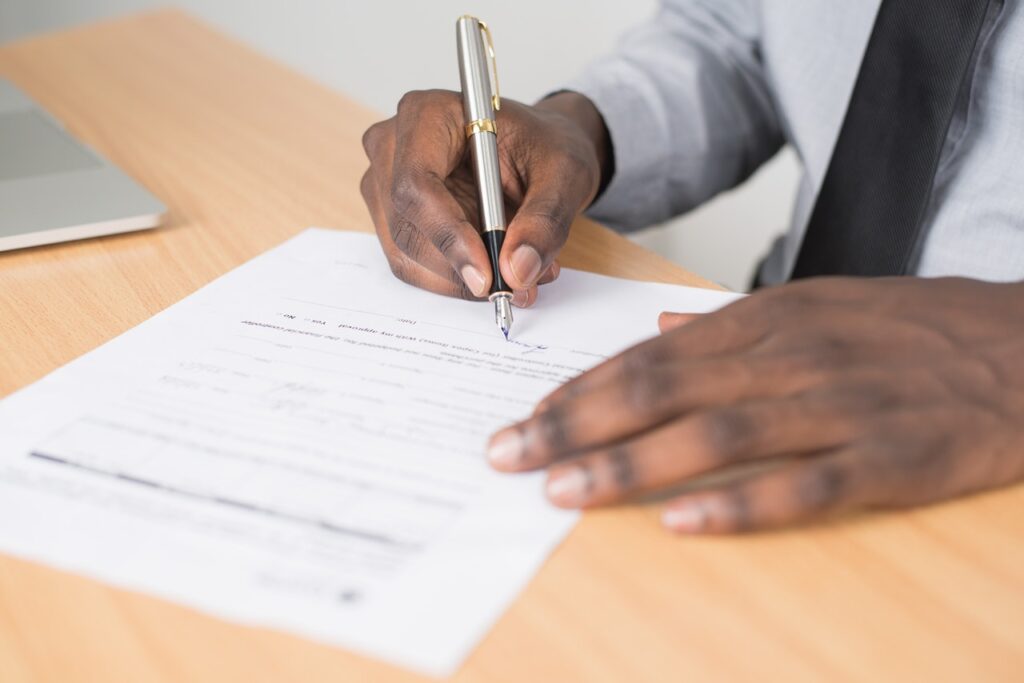Immigration Appeals and Litigation
Dedicated Immigration Attorneys.
Trusted Advocates.
This is Shihab Burke, LLC, Attorneys At Law.
Immigration Appeals and Litigation
In the event an immigration petition or application is denied or revoked, the petitioning party may appeal the decision. The notice of revocation or denial will advise the petitioning party if they have the right to retrial and, if so, the procedure for appealing the decision. The type of petition or application being appealed will determine the reviewing authority. The Administrative Appeals Office (AAO) and Board of Immigration Appeals (BIA) are the two government agencies with original jurisdiction over immigration appeals.
If you need help with Immigration Appeals and Litigation, call the law offices ofShihab Burke, LLC, Attorneys At Law

Immigration Appeals and Litigation Process
The notice of revocation or denial will not only specify the reason for the decision and identify the appellate body with jurisdiction but also indicate the correct form and deadline. Generally, appeals from an application or petition that was denied must be filed within 30 days of the original decision, and appeals from an approved application or petition that was revoked must be filed within 15 days. An additional fee is required to file an appeal, but the appealing party may apply for a fee waiver under certain circumstances. The appealing party has the option of being represented by an attorney and filing a brief in support. Ultimately, the reviewing authority will make one of the following determinations:
1. Uphold the original decision;
2. Reverse the original decision; or
3. Remand the matter to the original adjudicator for further action.
It is important to note that only one appeal per denial or revocation may be filed, and denials of extensions or change of non-immigrant status cannot be appealed. Moreover, only the petitioning party, and not the beneficiary, has standing to appeal an adverse decision. The time frame for processing and receiving an appeal decision can range anywhere from an immediate decision up to two years.
Please visit USCIS Immigration Appeals and Litigation for more information.
ADMINISTRATIVE APPEALS OFFICE
The BIA is part of the Executive Office of Immigration Review. It has jurisdiction over, among other things, appeals arising from removal or exclusion orders, fines, motions to reconsider and motions to reopen. The BIA primarily conducts “paper” reviews without courtroom proceedings but has been known to grant oral argument on rare occasions.
MOTIONS TO REOPEN OR RECONSIDER
Within 30 days of an adverse decision, a petitioning party may file a motion to reopen or a motion to reconsider. A motion to reopen requests that the adjudicating authority reopen the case because new evidence or facts are available that may alter the original determination. Alternatively, a motion to reconsider alleges that the original decision contained an erroneous application of law or policy that should be reconsidered by the adjudicator.
JUDICIAL APPEAL
A judicial appeal directly to the US Circuit Court is sometimes possible without first appealing as discussed above. In some cases, it may be better if the initial appeal through the administrative course is thoroughly presented, and including all available facts; leaving only the most essential and critical facts when making a judicial appeal, if necessary (at this later stage, the law doesn’t easily accept the presentation of additional facts).
Regardless of the situation, filing an appeal is a complex process and it is strongly recommended that you seek support from experienced legal advisors who can solidly present your case and defend your rights.
Read more about Immigration Appeals and Litigation.
Qualifying for an I-601 Waiver
To qualify for an I-601 waiver, you must offer proof that your absence will cause your citizen- or resident-relative to suffer a severe personal hardship. In most cases, the citizen- or resident-relative must be a spouse, parent, or child. Our knowledgeable immigration lawyers can help you understand the I-601 petition and process; determine your eligibility; and demonstrate to the government why you should be granted a waiver of inadmissibility.
Since 2013, the I-601A (Provisional Waiver of Unlawful Presence) provides a second option to those deemed inadmissible. However, the I-601A does not waive other grounds of inadmissibility such as a previous criminal record. Additionally, the relative facing the hardship must be a spouse or parent (not a child) and a citizen (not a permanent resident). The immigration attorneys at Shihab Burke, LLC, Attorneys At Law can determine if the I-601A may or may not be appropriate for you. If you have previously been deported or removed, contact us for assistance.
Hire an Experienced Immigration Attorney
Immigrating to the U.S. is undoubtedly a complex process, but our attorneys at Shihab Burke, LLC, Attorneys At Law can help. Whether you’re a foreign professional or an employer willing to hire foreign workers, we can provide you with solid legal counsel and representation. It doesn’t matter where you’re located – simply contact our experienced immigration attorneys by either phone or email, and we’ll get started discussing your case and your particular needs.
If you want to read more detailed content about Immigration Appeals and Litigation.
